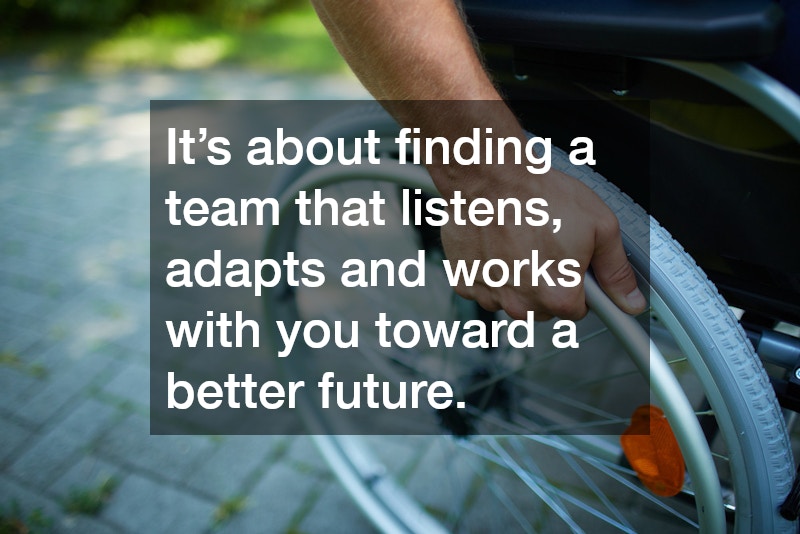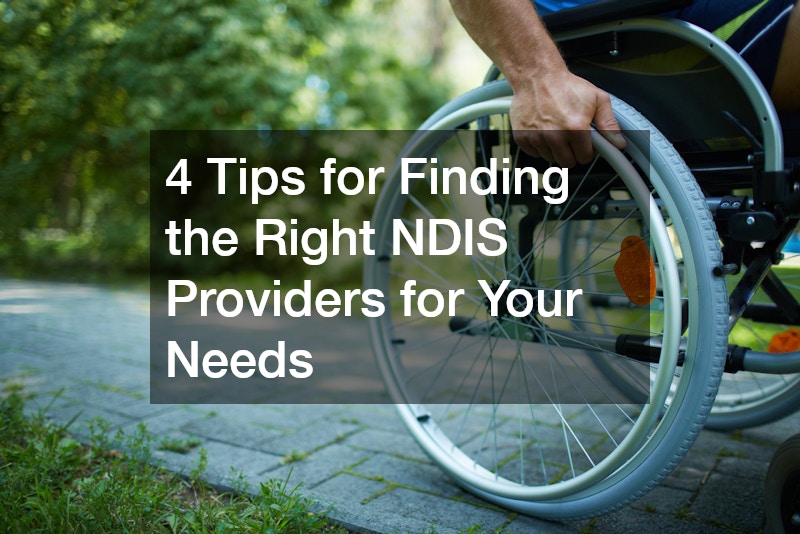Choosing the right ndis providers can feel overwhelming, especially when there are so many services and support options available. The National Disability Insurance Scheme is designed to empower people with disabilities by giving them greater control over their care, but finding the right provider can be just as important as having a plan in place.
Whether you’re new to the NDIS or reviewing your current supports, understanding how to evaluate potential providers can make a big difference in your experience. These four tips will help you find the right fit for your goals, needs and lifestyle.
1. Understand Your Plan and What Support You Need
Before looking for providers, it’s important to be clear on what your NDIS plan covers and what you’re hoping to achieve. Each plan is unique and tailored to individual goals, which means not all providers will offer the exact services you need. Take some time to review your plan, especially the core, capacity building and capital supports.
Think about your short-term and long-term goals. Are you working towards greater independence, looking to improve daily living skills or seeking therapy services? The right provider should align with these goals and offer services that match your funding categories. Some may specialise in one area, like physiotherapy or supported employment, while others may offer a broader range of assistance.
Knowing what you need will also help you avoid wasting time on providers who can’t meet your expectations. The more specific you are about the services you want, the easier it is to compare and evaluate different options.
2. Look for Experience and Qualifications
Not all NDIS providers have the same level of experience or qualifications. Some have been working with participants since the early rollout of the scheme, while others may be new and less established. It’s important to ask how long a provider has been operating and what kind of training or accreditation their staff hold.
This is especially important if you require specialised care. For instance, if you need behavioural support or occupational therapy, you’ll want to work with professionals who are fully qualified and registered with relevant industry bodies. You may also want to know whether the provider is registered with the NDIS Commission, as this can indicate a higher standard of service and compliance.
Experience doesn’t just apply to technical skills. A good provider should be able to build trust, communicate clearly and offer a personalised approach to care. Providers who take the time to understand your routine, preferences and goals are more likely to deliver support that’s both effective and empowering.
3. Consider Flexibility and Communication Style
NDIS support should fit into your life—not the other way around. That’s why flexibility is one of the most valuable traits in a provider. When interviewing or meeting with potential providers, ask how they schedule appointments, whether they’re willing to adjust plans as needed and how quickly they can respond to changes in your routine or goals.
Some providers may offer set service hours, while others might be able to accommodate evening or weekend sessions. Flexibility also means being open to feedback and collaboration. If something isn’t working, the right provider should be willing to adjust and explore new approaches without making the process difficult.
Communication is another essential factor. You should feel comfortable asking questions, raising concerns and making decisions about your own support. A provider who listens, explains things clearly and respects your input is more likely to support your growth and well-being in the long term.
4. Get Feedback from Other Participants
One of the best ways to learn about ndis providers is by speaking to others who have used their services. Word of mouth is powerful, especially within the disability community. You might find valuable insights from friends, local advocacy groups or online forums where participants share their experiences.
You can also check online reviews or ask the provider for testimonials. While every experience is unique, looking at patterns in feedback can help you identify red flags or positive qualities. For example, if several people mention poor communication or missed appointments, that might be a sign to look elsewhere.
If possible, try to meet with the provider in person before making a final decision. This gives you a chance to see how they interact with you, how their team works together and whether their approach aligns with your values and goals.
Choosing NDIS providers is about more than finding someone with the right skills—it’s about finding a team that listens, adapts and works with you toward a better future. Take your time, ask the right questions and trust your instincts throughout the process.
The right provider should make your life easier, not harder. By focusing on your goals, assessing qualifications, valuing flexibility and listening to real experiences, you can find the support that’s right for you. A strong partnership with a trusted provider is one of the most valuable tools you can have under the NDIS.



